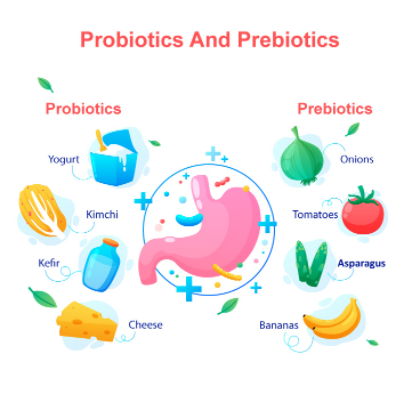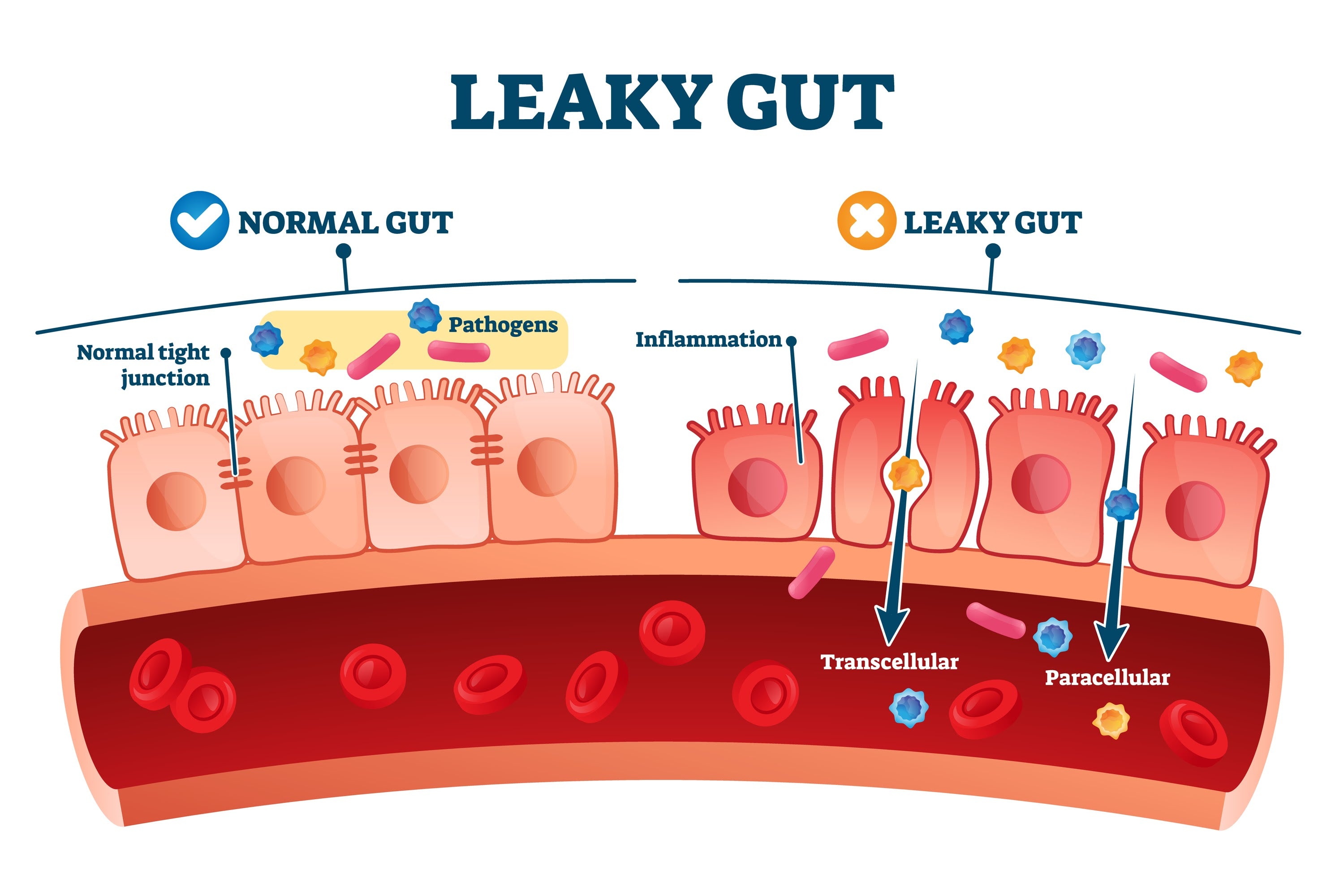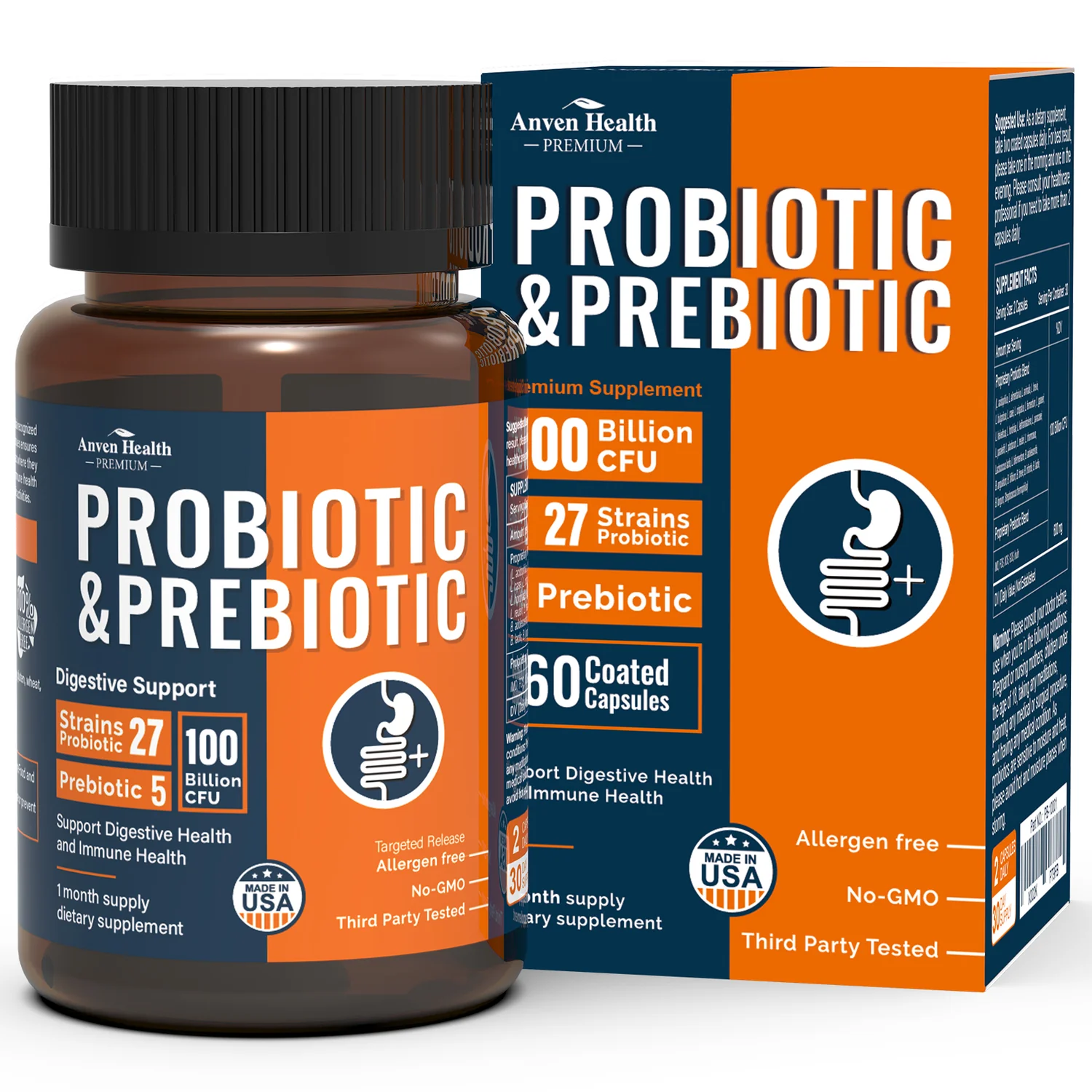What Are Probiotics and Prebiotics—and Which One Should You Take?

When it comes to gut health, the terms probiotics and prebiotics are often used interchangeably—but they are not the same. Both play essential roles in keeping your digestive system functioning smoothly, boosting immunity, and improving overall health. So, what exactly are they, and how do you know which one to take (or if you need both)? Let’s break it down.
What Are Probiotics?
Probiotics are live beneficial bacteria that naturally live in your body, especially in your gut. Think of them as the “good” bacteria that help keep the “bad” bacteria in check. They support a healthy balance in your microbiome—the community of microorganisms in your digestive tract.
You can get probiotics from fermented foods like yogurt, kefir, sauerkraut, kimchi, and miso. However, many people turn to probiotic supplements to get a consistent and concentrated dose of specific strains.
* Benefits of probiotics include:
* Improved digestion and nutrient absorption
* Relief from bloating, constipation, and gas
* Enhanced immune response
* Support for vaginal and urinary tract health
* Help managing IBS (Irritable Bowel Syndrome) and diarrhea
What Are Prebiotics?
Prebiotics, on the other hand, are types of fiber that your body can’t digest. Instead, they serve as “food” for probiotics. Prebiotics help beneficial bacteria grow and thrive, improving the overall balance of your gut microbiota.
Common prebiotics include fibers like inulin, fructooligosaccharides (FOS), and resistant starch, found in foods like:
* Bananas
* Onions
* Garlic
* Asparagus
* Oats
* Jerusalem artichokes
Prebiotic supplements are also widely available and are often included in synbiotic formulas (a combination of probiotics and prebiotics).
Should You Take Probiotics or Prebiotics?
That depends on your health goals and current digestive issues. Here's a quick guide:
You might need probiotics if you:
* Recently took antibiotics
* Struggle with frequent digestive issues
* Experience vaginal or urinary discomfort
* Have food sensitivities or inflammation
You might need prebiotics if you:
* Have a low-fiber diet
* Experience constipation
* Want to support existing gut bacteria naturally
* Are taking probiotics and want to enhance their effects
Best of both worlds?
For many people, the best approach is to take both probiotics and prebiotics together. This ensures your gut is getting a steady supply of beneficial bacteria and the nourishment they need to thrive.
Final Thoughts
Understanding the difference between probiotics and prebiotics can help you make informed decisions about your digestive health. Whether you choose to add more gut-friendly foods to your diet or incorporate a quality supplement, taking care of your microbiome is one of the best things you can do for your body.




Comments